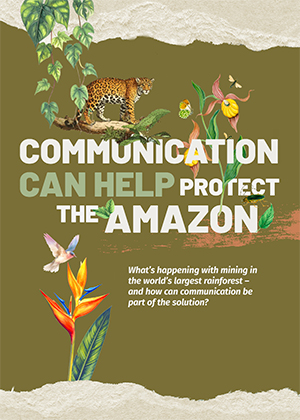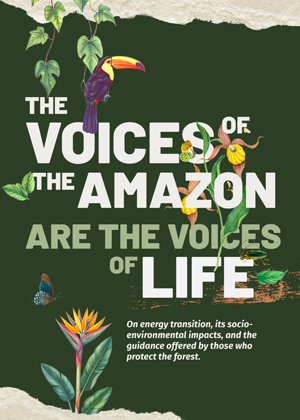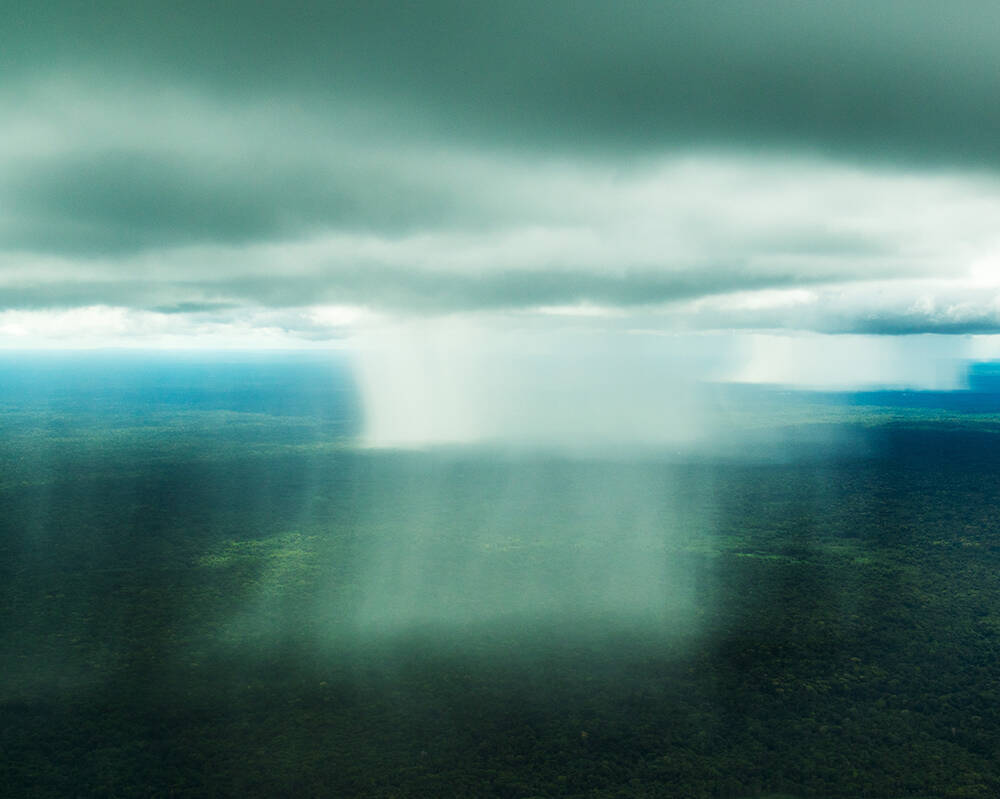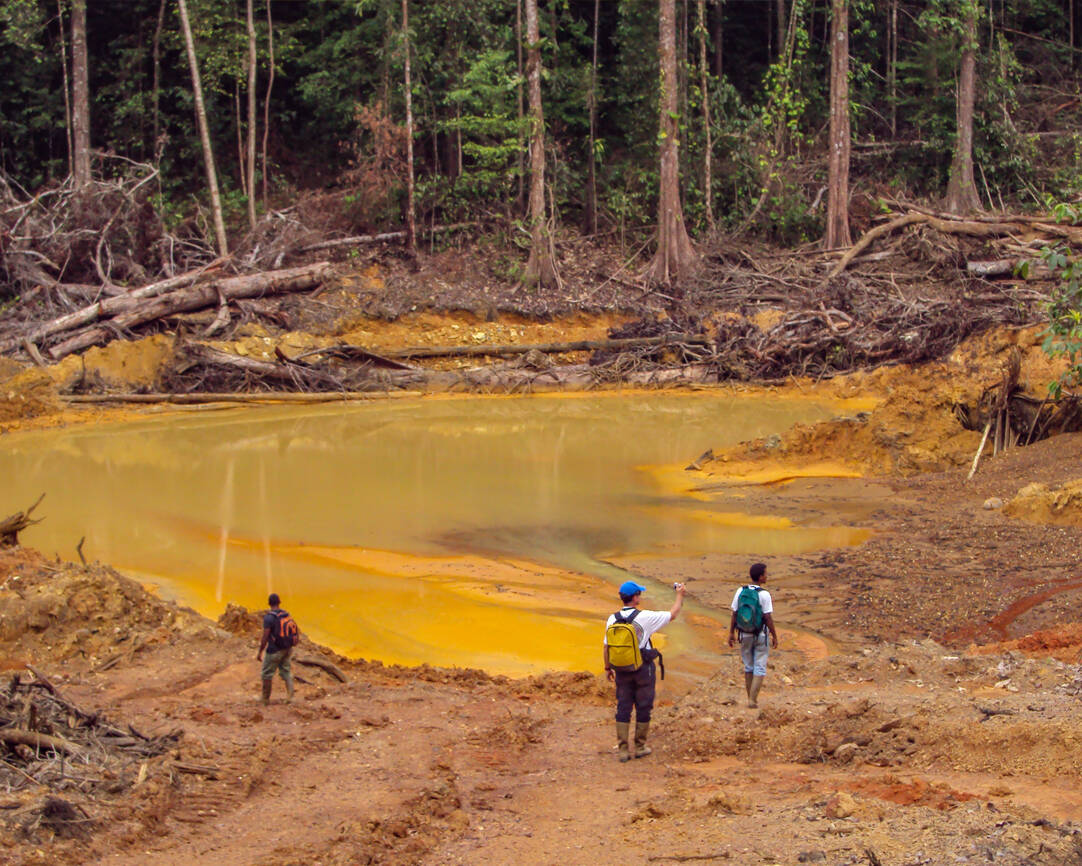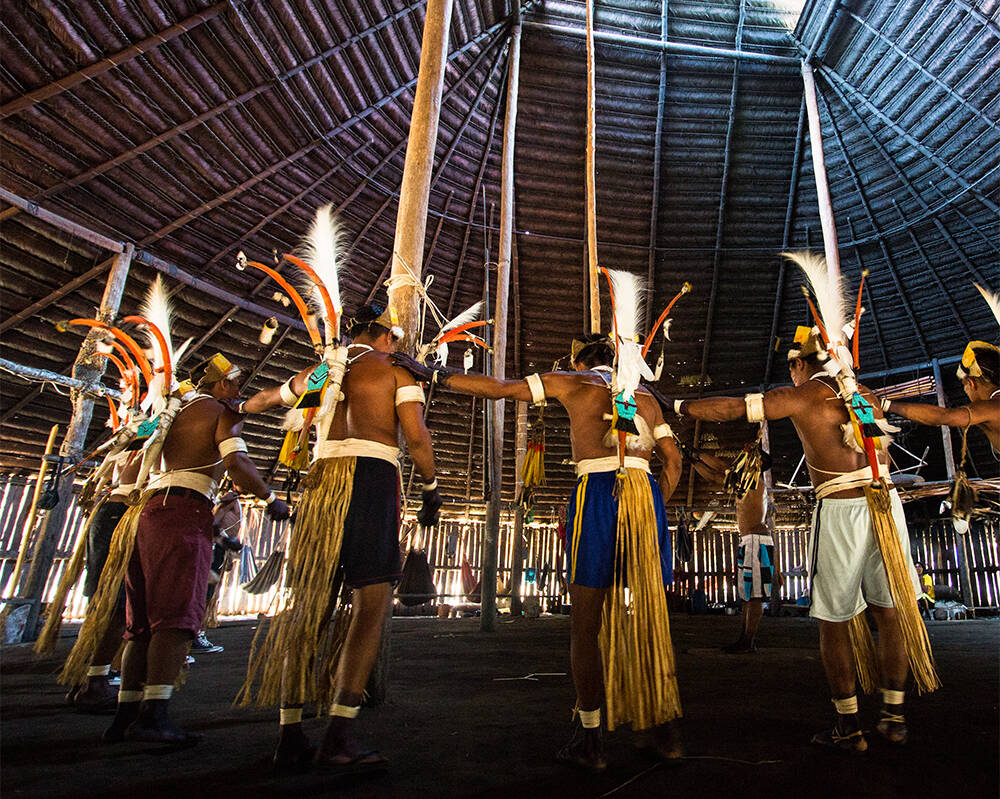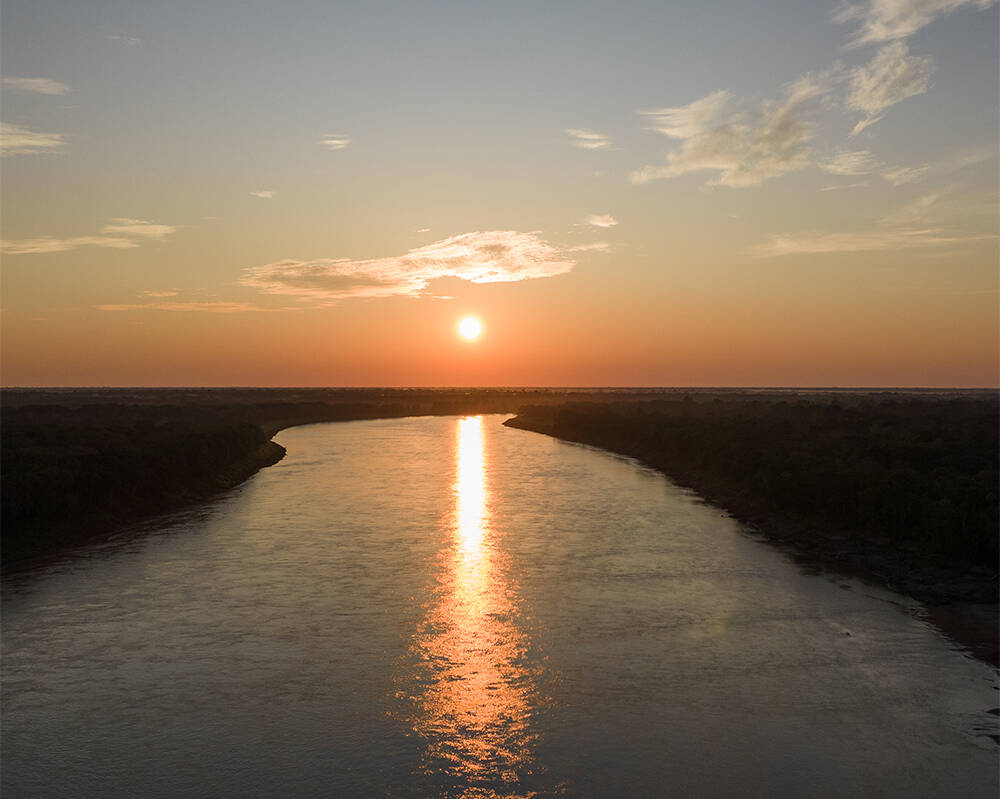Let us tell you a story about the Amazon rainforest.
About how the Indigenous peoples of Colombia saved it ...
And how Canada is now messing that up for everyone.
The Indigenous peoples of Colombia have worked to develop a robust, world-class approach to governing and protecting this incredibly precious landscape. It’s a sophisticated model that preserves their sovereignty while benefiting us all. In a post COP26 world, where progress on climate action seems shockingly slow, these measures have been life-saving.
But a pattern is emerging. Some rogue mining companies are trying to undermine this work and extract from this precious landscape for selfish gain. What does this have to do with us? 75% of all mining companies globally are headquartered here in Canada, and we’re supposed to be governing all Canadian-based companies to ensure they comply with international standards.
Leaders from the Macro Territory of the Jaguars of the Yuruparí (MTJY) and the Pirá Paraná and Yaigojé Apaporis indigenous territories in the Colombian Amazon are visiting Canada from June 7th to 15th, 2025. While they are in Canada they will meet with Indigenous leaders in British Colombia, provincial and federal political leaders and civil society organizations to discuss topics such as Indigenous-led conservation, duty to consult, responsible business conduct and other business related to the management of their territories. Below are two documents that explain why they are coming and how you can get in contact with us:
We conducted a Canada-wide poll to understand how Canadians think and feel about the issues we’re working on.
An international effort to save the Amazon would give the world a better chance to stop climate change.
By safeguarding the Amazon we can contribute to averting a global climate crisis, which is the most important problem humanity is facing today.
Percentage of Canadians not aware of the volume of mining companies headquartered in Canada.
Percentage of Canadians not aware that Canadian companies make up a large proportion of mineral mining production in the Amazon.
But when they find out, they care. Canadians believe that our federal government’s current practices shows it cares more about profits than human rights and the environment overseas.
Percent of responders when asked: whether the Canadian government cared more about the Amazon rainforest and its communities, or profits for Canadian mining companies
And it’s not just them. Experts in the field criticize the Canadian government’s role in facilitating the destruction of the Amazon and allowing human rights abuses by Canadian mining companies operating in the Amazon to go unpunished.
The same experts say that Canada has weak policies or practices in place and that the government focuses mainly on promoting mining in the region for the economic benefit it may bring to these companies and ignores other goals such as fighting climate change or protecting Indigenous rights.
That’s just plain out of touch with what Canadians think: that human rights, the environment, and climate change are more important than corporate profits for a few companies and their investors.
Response to the question: should the Canadian government have a role in regulating mining activities in the Amazon?
Response to the question: should the Canadian government have a role in regulating mining activities in the Amazon?
While this story isn’t yet widely known, when Canadians hear the criticisms of the Canadian government’s role in mining in the Amazon, they believe it is very important that their federal government shift their current mandate to focus on more important issues like saving the Amazon and defending human rights instead of corporate profits.
How important is it that the federal government changes their mandate to instead focus on …
- Protecting the Amazon forests to prevent the region from becoming a desert which would have major impact on the world’s climate and also kill the region’s economies
- Protecting the Amazon rainforest to fight climate change
- Protecting indigenous culture and rights in the region
- Balancing trade with human rights when negotiating future agreements
- Ensuring that the wishes of Indigenous communities are upheld when it comes to proposed development projects in the Amazon
Canadian-owned mining companies that are operating in the Amazon region should have regulations imposed on them by the Canadian government to …
- Make sure the Amazon forests are protected.
- Make sure human rights are respected when companies are operating abroad.
- Make sure local laws are being followed when operating abroad.
- Make sure Indigenous human rights in the Amazon region are respected.
- Make sure that Indigenous communities wishes are followed before any development begins.
The fix: To stop human rights and environmental abuses by Canadian companies in the Amazon and elsewhere, Canada needs an improved legal framework that ensures responsible business conduct in overseas operations.
That framework must be effective, immediate, and compulsory—mining corporations should have to ensure that their business practices are ethical and that they respect human rights and the environment throughout their supply chains.
And it’s not just us who think so. Canadians agree.
Opinion on Canadian legal framework
Most important aspects for new Canadian legal frameworks overseas
For the ending of this story to be a happy one, the answer is clear. We need the federal government to make these changes immediately, improving the lives of Canadians and those who call the Amazon home alike.
The Amazon Rainforest
Rivers in the Sky, Lungs of the World, Lifeline to Humanity. The awe-inspiring beauty and power of this natural…
Canada’s Dirty Little Secret
Mining is Canada's dirty little secret. Mining companies are committing human rights abuses and are also operating in…
Leaders of the Amazon
The story of the Indigenous people of the Colombian Amazon is a phenomenal one, exemplifying a model of success in…
The Solution
“The best way to shield the territory is to call upon the state. In other words: Western disease is cured by Western medicine. If all mining licenses are given by the state, it is necessary to call on the state to defend the territory.”Gerardo Macuna, ACIYA
- Through support, language, and allyship
- Indigenous Territories should be included in the spatial targets as a 3rd category (aside from protected areas and OECMs). Indigenous territories are established management units that contribute to the protection of biodiversity and need to be recognized as such
- Back Indigenous solutions, partner with Indigenous leaders and allies acknowledging indigenous knowledge systems
- Ensure relevant and ambitious targets and approaches for these key regions
Compensation for safeguarding these vital landscapes is required in order for them to be managed properly. Indigenous governments are leading the way, and face numerous threats from outside actors. Agencies for LIfe is an emerging mechanism for the financial sustainability of the Amazon and its leaders. The agency offers protection of the forest, its cultures, and the wellbeing of all and the establishment of 4 Indigenous Administrative Agencies at the national level, and 4 Indigenous Administrative Agencies at the local level, that strengthen administrative and financial management capacities and directly support Indigenous organizations in the North Amazon.
We’ve thoroughly documented a case study where a single actor, Cosigo Resources Inc, thoroughly undermined the legitimate land-use preservation mechanism set forth by the Colombian and Indigenous governments. Junior mining corporations like this sully Canada’s reputation and put us at risk of violating United Nations laws that require us to be accountable for businesses headquartered here.
As such, we are calling for responsible corporate conduct that includes strengthening CORE (the Canadian Ombudsperson for Responsible Enterprise) by ensuring:
- That it is independent
- Has the ability to investigate
- Has the power to call witnesses and produce documents
- It can issue public recommendations and propose remedies
- Has the power to monitor settlements
We speak about biodiversity primarily in quantitative targets, but to protect flora and fauna truly we also require a qualified approach that includes equitable, effective, and well-connected strategies. Conveniently, supporting Indigenous leadership efforts largely hits all three of these principles. We also need to ensure that quantitative targets for key ecological regions, like the Amazon, are appropriately ambitious. While Canada and the world work towards 30×30 targets, key regions like the Amazon need much higher targets. Currently 47.2% is protected yet it is still in crisis.
Indigenous communities already have the solutions for safeguarding the Amazon. Now Canada needs to do its part to not put those solutions, communities, and the world at risk. In the coming months we’ll partner with Canadian civil society, pressure Canada’s decision-makers and appeal directly to Canadians to do better. We will also expand on policy prescriptions to address the challenges we’ve underscored here.

